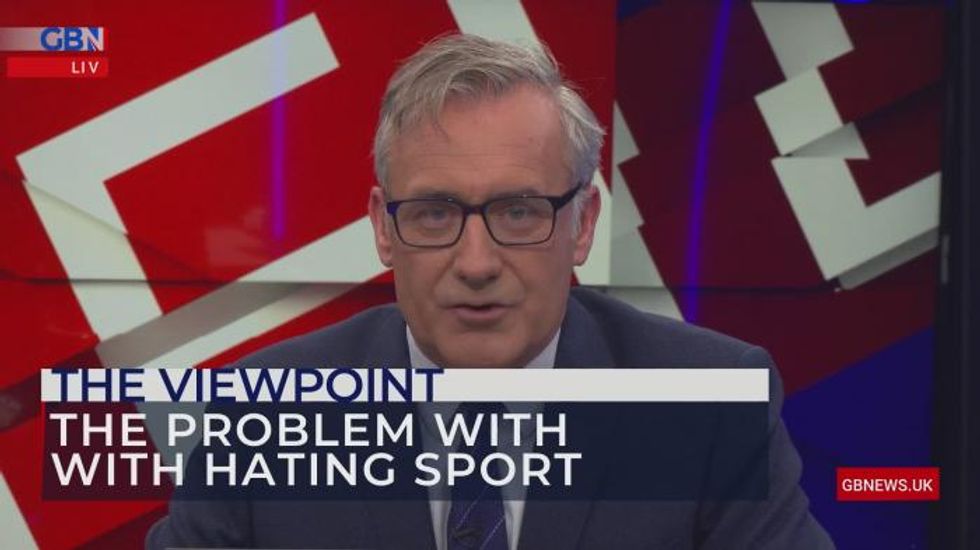Don't Miss
Most Read
Trending on GB News
If you’re watching this, there’s a strong possibility you’re not a fan of English football.
But that’s not to say you don’t love sport. Or appreciate that the games we play are important.
Tonight, the focus in England may be on the highly-paid professionals who, even if they lose, have already won the lottery of life.
Instead we focus on the rest of us. We amateurs who play sport – not for the riches, but recreationally; for fun, fitness and friends.
Given how many English viewers are glued to the Euros, our starting point is a report produced for a Scottish think-tank.
Considering how many thousands of Scots travelled to London for the match against the Auld Enemy, you might be surprised to know how grass-roots football is getting on north of the border. Over a ten year period, numbers have fallen eleven per cent, so says the Observatory for Sport in Scotland.
What about the game Fife gifted to the world? Golf. In Scotland it’s possible to play on some of the best courses on Earth for peanuts, because they’re owned by councils. It’s not just cheaper, but lighter. There will be Scots right now, ignoring the hue and cry of English football, by tee-ing off. It being mid-summer, the further north you go, the brighter it stays.
But the fall in recreational golf is three times worse than football. Down by a third in Scotland in a decade.
For Scotland, read the rest of the UK. Overall, games requiring less skill, time, formality, and fewer – usually no - playing partners are doing relatively well.
Conversely, games which need some technical ability, require a lot of your time – with no ducking out early, a knowledge of rules, and a requirement for team-mates are doing less well.
Translate that into real life and what do you get. Solo or lifestyle activities, that can be done from your front door, are in the ascendancy. Games which require that you turn up at an appointed time, with equipment and a smile for your friends, are declining.
Before you start tweeting, this is not to dismiss cycling or running or going to the gym as anti-social. Folk make friends on park runs, in the peleton and when pumping iron. But let’s be honest, gregarious games are less popular than they were.
Why is this? My late father-in-law would play cricket for two different teams over the weekend. Saturday and Sunday therefore obliterated for his long-suffering spouse. Not many partners are willing to share quality time with a sport to that degree anymore.
And, yes, Sunday is no longer a whole day of recreation. Millions have flexible contracts that mean anti-social working hours. How can you commit to a regular 10 o’clock kick off if you don’t know what your shift-pattern is.
But isn’t there something else going on that tells us about the atomization of society. We are becoming more individualistic. Perhaps less competitive, or at least not so sporting. A reluctance to defeat an opponent in person and talk to them afterwards. Far easier to get our dopamine hits online without going to the trouble of a physical encounter.
Does this matter? Eight million people now live alone in Britain and not all our communities get on as we might wish. Sport is an adhesive. It can glue together fractured people and places.
A couple of months ago Westminster MPs were told that lockdown meant physical and sporting activity had fallen by two thirds. The state and businesses are worried about obesity and what it will cost. We can predict that the taxpayer will pay for more gym passes for the overweight. Companies will contribute towards the cost of an employee’s new bicycle.
But there’s another cost to less sport, particularly if that means fewer team games. The loss of social cohesion that happens when another golf club or cricket club closes its pavilion doors for the last time, before the fairways or outfield are given over to another housing estate.
That’s tonight’s Viewpoint.











